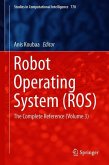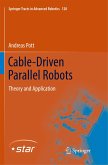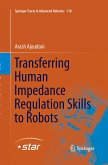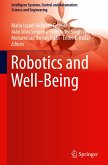In Robots We Trust explores the evolving relationship between humans and intelligent machines, focusing on the critical issue of trust. As robots become more integrated into our daily lives - from self-driving cars to delivery drones - our society faces a critical question: can we trust them? Without requiring technical or mathematical expertise, the reader is introduced to the sciences of artificial intelligence and robotics, addressing philosophical debates about machine intelligence and cognition. It examines the psychological, moral, and ethical issues unique to human-robot interactions and the factors that influence our acceptance of these machines, such as their appearance, behaviour, and our own cultural backgrounds. However, trust is a mutual relationship. In Robots We Trust presents the groundbreaking concept of Artificial Trust, where robots are empowered to decide whether to trust humans. Through real-world examples of contemporary scientific experiments in cognitive robotics, the book reveals the significant impact of these ideas for our future.
Bitte wählen Sie Ihr Anliegen aus.
Rechnungen
Retourenschein anfordern
Bestellstatus
Storno








